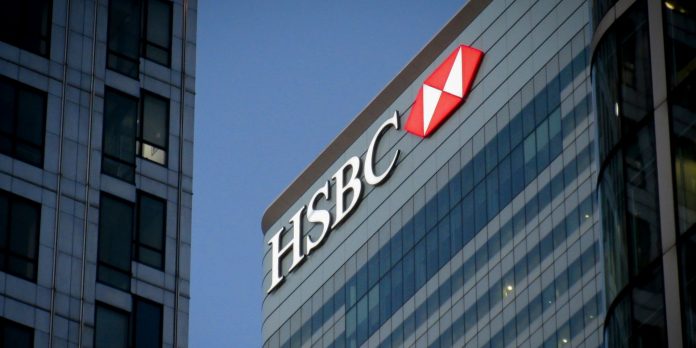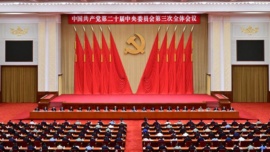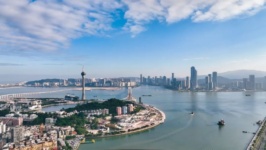Global bank HSBC announced Tuesday the shock departure of chief executive Neil Quinn, who will retire after overhauling the group in an “intense” five-year tenure weathering a Covid fallout, simmering geopolitics, and shareholder pressure to spin off Asia assets.
Quinn, 62, who streamlined HSBC to focus more on Asia, has decided to pursue a portfolio of business interests that allow him to have more time with family, HSBC said in a statement alongside quarterly results.
“I wanted to get a better balance for me personally and for my family to make sure I can spend more time with them,” Quinn told journalists following the announcement.
“We’ve created a more focused business and I truly believe we have built a strong platform for the bank’s next phase of development and growth. That’s why I feel this is the right time to step back,” he said.
‘Successful transformation’
HSBC said Quinn oversaw a “successful transformation” of the firm and record profits under his stewardship, which also saw him slash 35,000 jobs in the wake of the Covid pandemic.
“We all know how challenging the world has been over the past five years. There isn’t one particular event or incident, in fact the last 12 months of last year were extremely positive in terms of the financial performance of the bank,” Quinn said.
He will continue as CEO to ensure a smooth transition until his successor begins, while the lender has already begun a process which will consider internal and external candidates.
“During his tenure, HSBC has delivered record profits and the strongest returns in over a decade,” HSBC added.
“He has successfully simplified and focused the bank, most recently with the sale of the Canada and Argentina operations and built a leading position on sustainability.”
The news, in tandem with a share buyback, sent HSBC’s shares jumping three percent to top the gainers in morning deals on London’s rising stock market.
Hong Kong shares rallied 2.2 percent at the close to the highest level in more than four years.
“HSBC’s share price is rising… as the market focuses on the buyback, decent profits and strong net interest income along with an expected drawn-out succession plan,” said XTB analyst Kathleen Brooks.
HSBC’s first-quarter net profit dipped 1.4 percent to $10.2 billion, after taking a $1.1-billion impairment from the sale of Argentina operations — and a $4.8-billion gain on the sale of Canadian activities.
Pre-tax profit slid almost two percent to $12.7 billion, while the group announced a new share buyback of up to $3.0 billion and an interim dividend of $0.10 per share.
Revenue rose three percent to $20.8 billion, reflecting higher customer activity in wealth products.
Pivot to Asia
Under Quinn, the lender accelerated a years-long pivot to Asia — where it generates most of its revenue — vowing to develop its wealth business and target fast-growing markets.
The London-headquartered bank announced this month that it would sell its Argentina division to financial services company Grupo Financiero Galicia for $550 million.
HSBC last month concluded the sale of its Canadian operations for $10.1 billion.
In January it also sold its retail banking operations in France.
Quinn joined HSBC in 1987 and was appointed interim CEO in 2019 after several years leading its commercial banking unit.
He became HSBC’s permanent CEO in March 2020, when the bank’s shares in Hong Kong tanked sharply at the beginning of the Covid-19 pandemic.
Quinn led last year the effort to repel a bid by major shareholder Ping An to spin off its Asia assets, with the proposal eventually voted down by shareholders.
The break-up bid highlighted HSBC’s precarious position amid US-China tensions, with some observers questioning whether Europe’s largest lender can continue to straddle East and West.





















